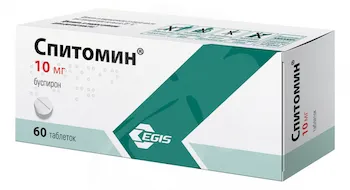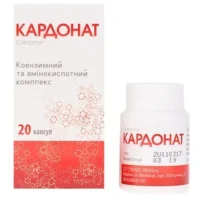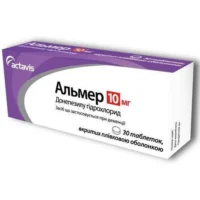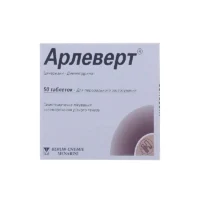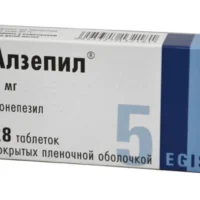Description
Spitomin (Buspirone) Tablets 10 mg. №60
Ingredients:
- Each tablet contains 10 mg of buspirone hydrochloride as the active ingredient.
Dosage:
- The usual recommended dose is 10 mg taken two to three times daily.
- Dosage may vary based on individual response and should be taken as prescribed by a healthcare provider.
Indications:
- Spitomin tablets are indicated for the management of anxiety disorders or the short-term relief of anxiety symptoms.
- It is thought to work by affecting certain neurotransmitters in the brain.
Contraindications:
- Do not use Spitomin if you are allergic to buspirone or have a history of certain medical conditions.
Directions:
- Take Spitomin tablets orally with or without food as directed by your physician.
- It may take several weeks for the full benefits of the medication to be felt.
Scientific Evidence:
- Buspirone, the active ingredient in Spitomin, has been studied for its anxiolytic effects.
- Research suggests that buspirone may be effective in the treatment of generalized anxiety disorder (GAD) by modulating serotonin and dopamine receptors in the brain (Source: National Library of Medicine).
Additional Information:
- It is important to follow the prescribed dosage and not to exceed it.
- Inform your healthcare provider about any other medications you are taking before starting Spitomin to avoid potential drug interactions.
Buspirone, the main component of Spitomin, is a serotonin receptor agonist and a dopamine receptor antagonist. It works by binding to serotonin receptors and modulating their activity, resulting in a calming effect on the central nervous system. This mechanism of action differs from benzodiazepines, making buspirone a preferred choice for some patients due to its lower risk of dependence and tolerance.
Clinical trials have shown that Spitomin (buspirone) tablets 10 mg are well-tolerated and effective in reducing symptoms of anxiety disorders. In a comparative study published in the Journal of Clinical Psychiatry, buspirone was found to be as effective as benzodiazepines in treating GAD, with a lower risk of cognitive impairment and withdrawal symptoms.

